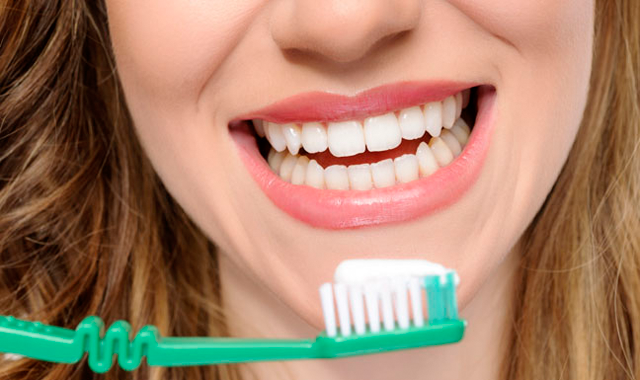Apart from your physical and mental health, your oral health is vital as well. While it may seem easy to deal with oral health problems, as help is easily accessible, poor oral health and hygiene could lead to more intense diseases that could affect your daily lifestyle.

When you choose to ignore your oral health, you might develop a canker sore, which could be extremely painful to have, especially if you enjoy devouring different kinds of food. You could look for additional info on how to cure a canker sore if you have it, but the best thing to do is to avoid having it in the first place. Listed below are the best practices you could perform to improve your oral health and hygiene and avoid severe dental problems.
Never Skip On Brushing Your Teeth
While brushing your teeth would help you to have a fresher breath in the morning, there’s a more important reason for you to make this a daily habit. As you brush, you eliminate bacteria and plaque buildup on your teeth, which could develop into bigger problems if left ignored. For effective cleaning, consider brushing your teeth for 2 minutes at least to ensure you brush away everything that’s left.
You could do this two times a day for better oral health—one in the morning and another before heading to bed. If you have enough time on your hands, it’s best to brush your teeth after eating lunch as well. This would ensure your teeth are always clean and far from developing cavities and bacteria.
Don’t Forget To Floss
Brushing your teeth might be a part of your daily habit of maintaining a clean set of teeth. But to maximize your tooth-cleaning routine, consider flossing your teeth immediately after brushing. This way, you could eliminate every food particle that may stick on the gaps of your teeth, which could develop into bacteria if you allow them to sit.
Flossing may be done once a day, preferably before going to sleep. What’s good about flossing is it keeps not only the teeth but also the gums healthy all the time. When flossing, do it carefully and try not to be too hard or harsh, especially when reaching your gums, as intense movement could cause your gums to bleed.
Clean Your Tongue As Well
Apart from your teeth and gums, your tongue needs some cleaning, too. Everything you put into your mouth goes through your tongue, which could home bacteria. That’s why it’s also important to clean your tongue every time you brush your teeth.
You could use your toothbrush to clean your tongue. Or use a tongue cleaner, which could help scrape off plaque and bacteria more effectively. Doing this would not only ensure your mouth is thoroughly cleaned. But it could also eliminate the possibilities of foul mouth odor, which could be embarrassing to have.
Change Your Toothbrush Regularly
A toothbrush isn’t supposed to live forever. No matter how expensive or top quality your toothbrush is, changing it regularly is vital to keep your brushing habit healthy.
It’s ideal to change your toothbrush at least once every three months. With regular toothbrush changes, you’d be ensured of a device that could effectively remove plaque and bacteria buildup. A brush that’s been used for a long time would eventually get soft and lose its cleaning capacity, thus being unable to perform optimally. So remember to change your toothbrush as soon as you notice any signs of aging.
Even a toothbrush that’s 1 month old needs to be disposed of immediately once you notice it’s no longer properly aligned and is getting old. If you have enough budget, you might want to consider getting an electric toothbrush, which could provide more thorough action than a regular one. However, a standard toothbrush could still get the job done.
Keep Your Equipment Clean
Apart from regularly changing your toothbrush and tongue cleaner, it’s also crucial to keep them clean at all times. The tools you use to keep your teeth clean should also be in their best possible condition. This would ensure their effectiveness and help you maintain best oral health practice.
It’s preferable to clean your devices before and after brushing your teeth. Ensure you rinse your toothbrush well and check if any toothpaste residue stays in between the bristles. To prevent molds from developing, try to keep your toothbrush dry before storing it. This way, you’d avoid moisture buildup, which could compromise the cleanliness of your brush. If you don’t have enough time to dry your brush up, tapping it enough to let any drop of water out may do the trick.
Regarding toothbrush storage, always keep it in an upright position to allow water to drip off the brush and through the handles. It’d be best to separate your toothbrush from other brushes to prevent cross-contamination. If you could have a separate brush holder, the better. While it may feel safe to use a closed container, this could, however, invite more mold and bacteria to build up, which may only do more harm than good.
Visit Your Dentist Regularly
No matter how much you practice good oral hygiene at home, a dentist would do a better job of keeping your oral health in its best shape. While you may think you’re doing everything you could to keep your teeth and gums healthy, you still might develop issues only a dentist would be able to identify.
To keep optimum oral health, ensure to visit your dentist for a routine checkup at least every six months. This way, you could get your teeth inspected by the dentist, who could identify any problems as early as possible. With early prevention, you could eliminate the problem of tooth removal or the possibility of surgery.
The ideal scenario is to have one dentist regularly check you up. This would allow the dentist to know your dental history and provide proper treatment in case any disease or problem arises.
Conclusion
Practicing good oral health could bring you wonders, so remember to always keep an excellent oral lifestyle by brushing and flossing your teeth regularly. After all, it’d only consume a little of your time but would benefit you greatly since you’d be able to avoid any oral problems, which could be painful and expensive.
Moreover, a regular visit to the dentist would never hurt. Your dentist could provide proper guidance about your oral health, thus allowing you to enjoy your pearly whites for as long as possible.




